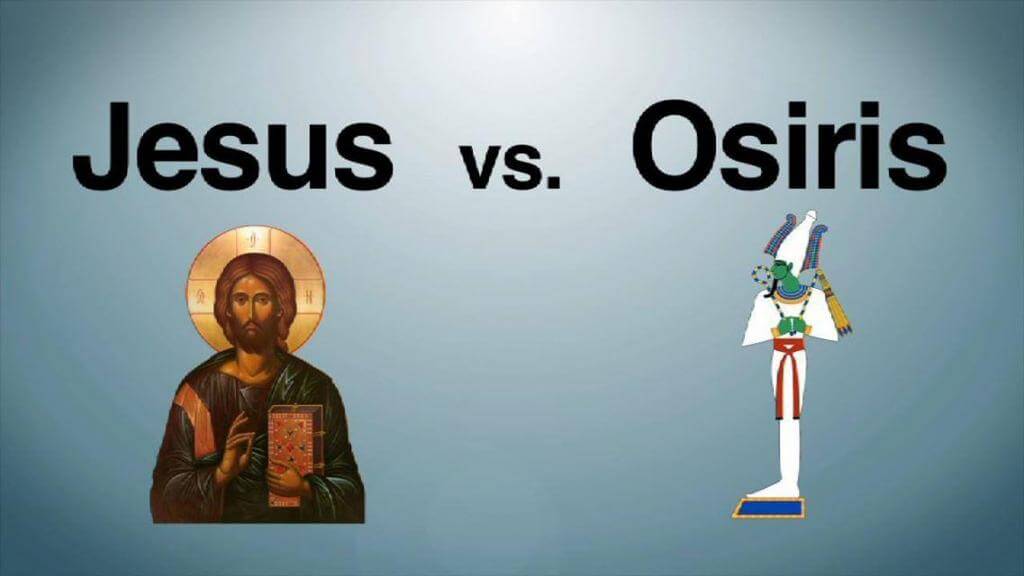Featured
Do Christians And Muslims Really Worship The Same God?
| | Apologetics, Islam | 0 comments“We all worship the same God”. Table of Contents 1) Where YHWH and Allah Appear Similar 2) Where Allah’s Character Contradicts YHWH’s Goodness 3) Where Their Revelations Directly Contradict Each Other 4) YHWH’s Love for the Nations vs. Allah’s Commands to Subjugate 5) Can God Be Seen? What the Bible and Qur’an Say 6) Salvation by Grace vs. Salvation by Works Conclusion: Same God? Or Different Revelations? You’ve heard it from politicians, celebrities, and even some pastors. It’s become something of a modern mantra, trying to shoehorn acceptance of other beliefs and blend all religions into one, especially the Abrahamic ones. But what if the Bible and Qur’an tell different stories? Let’s see what their own words reveal so you can judge for yourself. This Tweet recently caused a stir on social media 1) Where YHWH and Allah Appear Similar Many point out that Jews, Christians, and Muslims share a belief in one eternal Creator God. That’s true — up to a point. Both the Bible and Qur’an describe God as powerful, all-knowing, merciful, and more. Here’s a list comparing some of the common shared attributes between YHWH and Allah, with direct citations from both Scriptures: 26 Shared Attributes of YHWH and Allah According to the Bible (NRSV) and the Qur’an Eternal YHWH: “From everlasting to everlasting you are God.” — Psalm 90:2 Allah: “He is the First and the Last…” — Surah 57:3 Creator YHWH: “In the beginning God created the heavens and the earth.” — Genesis 1:1 Allah: “The Originator of the heavens and the earth…” — Surah 2:117 Omnipotent (All-Powerful) YHWH: “Nothing is too hard for you.” — Jeremiah 32:17 Allah: “Allah is over all things competent.” — Surah 2:20 Omniscient (All-Knowing) YHWH: “Even before a word is on my tongue, O LORD, you know it.” — Psalm 139:4 Allah: “He knows what is on the land and in the sea…” — Surah 6:59 Omnipresent (Present Everywhere) YHWH: “Where can I go from your Spirit?” — Psalm 139:7–10 Allah: “He is with you wherever you are.” — Surah 57:4 Holy YHWH: “Holy, holy, holy is the LORD of hosts.” — Isaiah 6:3 Allah: “The Holy One (Al-Quddus).” — Surah 59:23 Just YHWH: “A God of faithfulness and without injustice.” — Deuteronomy 32:4 Allah: “Is not Allah the most just of judges?” — Surah 95:8 Merciful YHWH: “The LORD, merciful and gracious…” — Exodus 34:6 Allah: “The Most Gracious, the Most Merciful.” — Surah 1:1 Compassionate YHWH: “As a father has compassion on his children…” — Psalm 103:13 Allah: “He is the Forgiving, the Affectionate.” — Surah 85:14 Faithful YHWH: “Great is your faithfulness.” — Lamentations 3:22–23 Allah: “Indeed, the promise of Allah is truth.” — Surah 30:60 Unchanging YHWH: “For I the LORD do not change.” — Malachi 3:6 Allah: “None can change His words.” — Surah 6:115 Sovereign YHWH: “The LORD has established his throne in the heavens…” — Psalm 103:19 Allah: “Blessed is He in whose hand is dominion…” — Surah 67:1 Loving YHWH: “God is love.” — 1 John 4:8 Allah: “Indeed, my Lord is Merciful and Affectionate (Al-Wadud).” — Surah 11:90 Forgiving YHWH: “I will not remember your sins.” — Isaiah 43:25 Allah: “Allah forgives all sins…” — Surah 39:53 Wrathful toward evil YHWH: “The LORD is a jealous and avenging God…” — Nahum 1:2 Allah: “For them is a severe punishment.” — Surah 3:4 One/Unique YHWH: “The LORD is one.” — Deuteronomy 6:4 Allah: “Say: He is Allah, One.” — Surah 112:1 Jealous of worship YHWH: “I the LORD your God am a jealous God.” �...
The Problem of Suffering and How We Approach it
| | General Articles, Christianity | 0 commentsThe topic of human suffering is a subject many Christians struggle with, and is an issue many theologians have written about over the centuries — so it's definitely not something I can fully address in a single blog post! But there are some general principles we can find in Scripture that many Christians can/do accept, which should act as a starting point to addressing this subject, such as: We live in a fallen world due to sin (Gen 3), and so things aren’t perfect and neither are people...
Jesus was a pagan copy, and other Christmas myths
| | Apologetics, Christmas | 0 commentsIt's that time of year again when certain groups of people like to share memes and videos that apparently "prove" Jesus to be a carbon-copy of ancient Egyptian gods. This has been debunked so many times, yet it's still so pervasive on social media, mindlessly shared over and over again. This myth about Jesus being a copy of other pagan "dying-and-rising gods" doesn't have its roots in Egyptian legend, but rather in the claims of a film called Zeitgeist. A quick search online will bring up many...
Why Read The Early Church Fathers?
| | General Articles, Early Church | 0 commentsWhy read the Early Church Fathers? Maybe for some of you reading this, the question might better be phrased as: who are the Church Fathers? No doubt you will be familiar with some of their names: Augustine, Jerome, Clement, Ignatius, Polycarp, Justin Martyr et al. You may have even read portions or quotes by some of these men. But that still doesn't really explain to you who they are and why you should care, much less actually read any of their works. My new book deals with a selection of so...
Evidence of the Trinity in the Hebrew Scriptures
| | Apologetics, Trinity | 0 commentsTable of Contents Jewishness and the Trinity 1. God Is A Plurality The Name Elohim Plural Verbs used with Elohim The Name Eloah Plural Pronouns Plural Descriptions of God The Shema II. God Is At Least Two Elohim and YHVH Applied to Two Personalities III. God Is Three How Many Persons Are There? The Three Personalities in the Same Passage Conclusion New Testament Light I was recently in some discussions/debates online about the nature of God and wheth...
Is Halloween a Pagan Holiday?
| | Apologetics, Halloween | 0 commentsIt's that time of year when you begin to see various articles and debates online about Hallowe'en, and whether it's entirely pagan in origin and the Church "stole it"; or if it's something that Christians should even have any part in. Table of Contents Origins of the holiday Aren’t there pagan roots? What about “Trick or Treat”, costumes and pumpkins? In conclusion To some people, the answer is a straightforward “no”, while others say it falls into the realm of Christian ...







